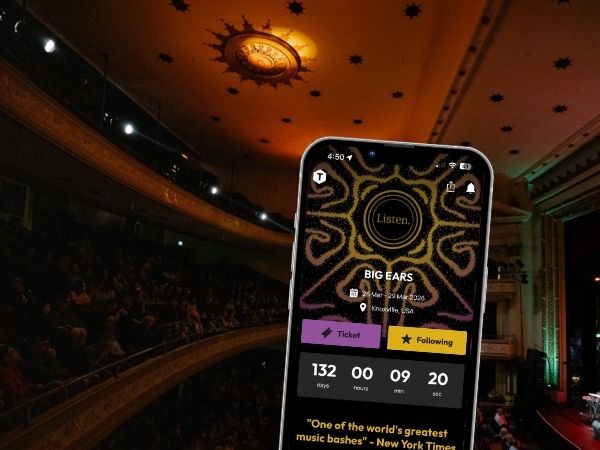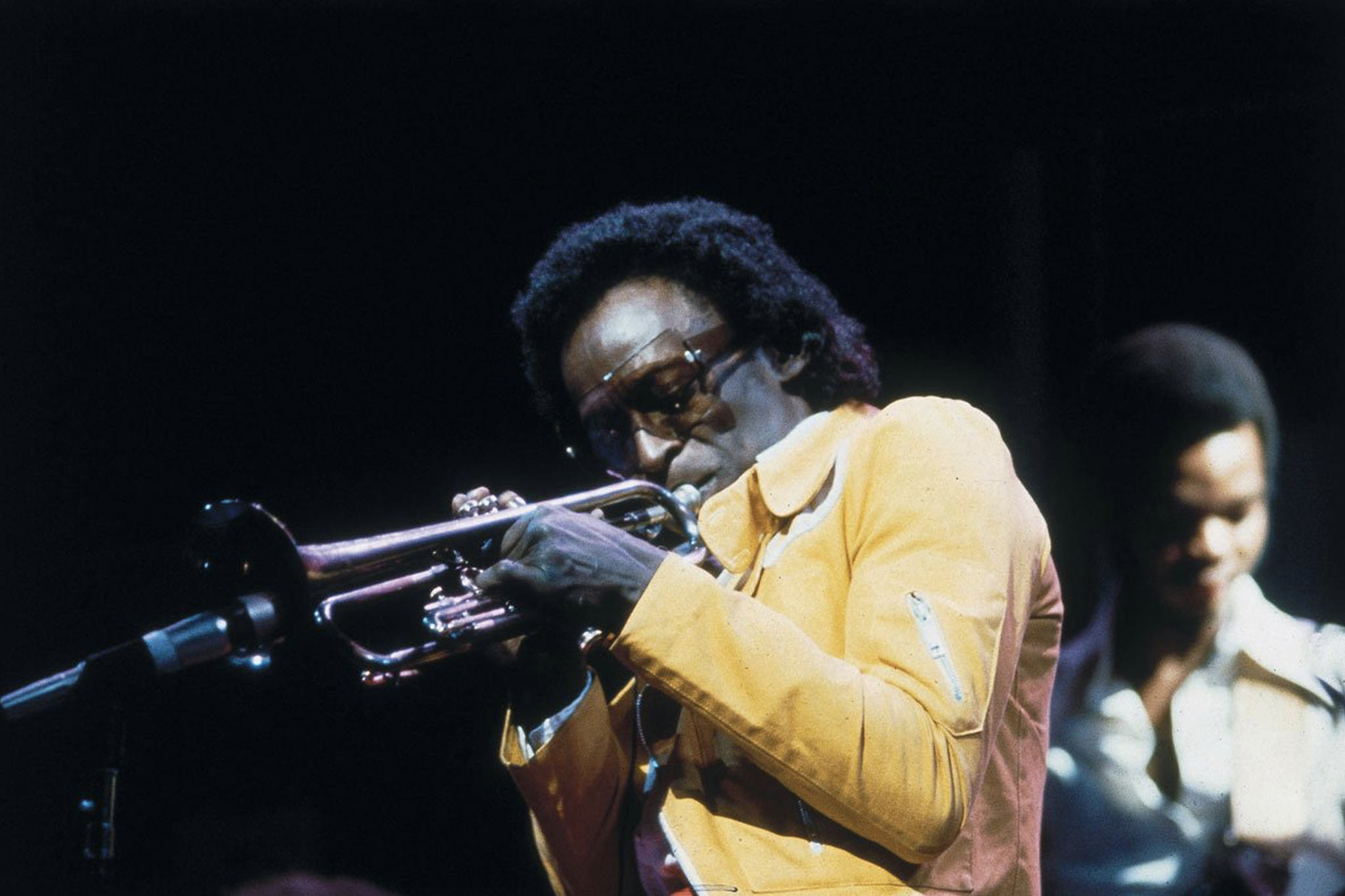Interview: Richard Thompson
In March, British folk-rock paragon Richard Thompson will perform Killed in Action for his Big Ears debut. Written as part of the UK’s four-year commemoration of World War I’s centenary, Killed in Action is a ground-level survey of the carnage and cruelty of conflict. Eschewing military history for personal narratives of the people who fought and died in what Thompson sees as a potentially needless war, Killed in Action amplifies anguish by focusing it so clearly on the individual. In honor of Armistice Day on November 11, we spoke with Thompson about the songs, his relationship to the world wars, and our own moment in history.
World War I is such a broad and weighty topic; what is the goal of Killed in Action, personally?
I have written a couple of songs about World War II, and that was an attempt to try and understand my parents’ generation and what they went through. Killed in Action is what my grandparents went through, to go back another generation. One of my grandfathers was in World War I. He was gassed and partially disabled the rest of his life. That was very impactful on him and on his family. Killed in Action is almost like an overview of World War I, from recruitment to death. That doesn’t sound too cheery, but the Western Front was a gruesome experience that left a generation either dead or disabled, maimed for life. It was an extraordinary event, a European convulsion.
Did writing those World War II songs help you understand your parents at all?
It’s easy to not understand your parents. It’s easy to just see them as, “Oh, they’re mom and dad. They’re not going to understand me.” I had to come to terms with the fact that my parents had been through an incredibly difficult six years, and, after the war, they wanted a peaceful time. They wanted to get on with life. As a teenager sometimes, I felt frustrated with my parents’ lack of energy. It was like they retired in their 30s, but they just wanted an easy life. My generation rebelled because of that, because life was too nice and safe. We wanted a bit more drama in our lives. I wrote a song called “Al Bowlly’s in Heaven,” which is about a British singer who was killed in World War II. But it’s also about a disabled veteran who becomes a tramp on the streets of London. These songs are just to try to understand previous generations, and it helps you understand yourself if you understand where you come from.
Did your parents hear those songs? What did they think?
My parents had a hard time with rock ’n’ roll generally, and, in some ways, it was hard for them to accept music as a career. They grew up working-class, so they didn’t see that as a real job. Even when I was in my 40s, my mom was still saying, “It’s time you start thinking about getting a proper job now. You can’t go on forever like this.” But they were accepting that this is what I did toward the end of their life, and they appreciated that I took the extra step to try and understand them.
Were you ever able to talk to your grandparents about their experiences in World War I?
I used to talk to my grandfather who was in the war; my other grandfather was disabled, so he wasn’t able to partake. My mother’s father, who was in the war, was just a really lovely old guy. His memory wasn’t that sharp about where he was at certain times. I’d ask him about certain battles, and he’d say, “Oh, yes, I was there,” but he would get confused about the dates. He was on the Western Front for a few years, which was a harrowing experience. But he made light of it, because I don’t think he wanted us to see that as a burden in his life. My own father was in this slightly secret thing, so he wasn’t able to talk about it. I was never able to ask my father too much about what he did, because he was bound by the Official Secrets Act for 50 years. I didn’t get much out of him.
Was the idea always to make Killed in Action a full song cycle?
At the beginning of the centenary of World War I, in 2014, the Centenary Arts Commission asked if I would do something. They wanted like six songs that I would perform as a segment of my usual set, which is something that I did. But one thing led to another, and I am bad at taking instruction. The six songs evolved into something much longer, into what is now a 45-minute piece with instrumental passages and a string orchestra. I followed wherever it led me, and it became this much more demanding piece, closer to a war requiem, really.
How did you dig into the subject and prepare to write these songs?
I read a lot of books on the subject. I read a lot of letters that were sent from the front line and from home to the front line. But the most revealing thing was actually diary extracts, where people recorded their true feelings. If they were writing a letter home, they wouldn’t be allowed to say exactly what was going on. They would make light of the hardship. But in diaries, they would tell it like it was much more. I based all the songs, really, on diary extracts. Some of those were published, but other ones I found in the archives of the Imperial War Museum of London.
Despite what you already knew about World War I, what shocked you in your research?
Disfigurement is not something I really wrote about, but the plastic surgeons who worked on the soldiers during and after the war was an extraordinary thing. To see the pictures of these men’s faces reconstructed is very moving and terribly sad. The rats grew huge on the Western Front, too, about four times the size of a normal rat. There was so much to eat, because they were eating human flesh. Men’s lives were just plagued by these enormous rats, and the fleas just made your life a misery of endless discomfort. The water in the trenches—all winter, the trenches would be flooded in some cases. There was this whole litany of discomforts even before you had to deal with the enemy.
Did you learn something about your grandparents’ generation in the process?
It was instructive. World War I was a kind of madness. You have to ask the question, “Was this necessary?” And maybe it wasn’t. There was this collision course that somehow Europe got into. World War II was much more clearly a moral war, fascism against freedom. And you can say that the people who sacrificed their lives in World War II did so that we can have the life that we have. To me, that’s very clear. I’m always very sympathetic to the soldier because he follows orders and potentially lays down his life in order that we can have the life that we have.
You mentioned the comforts of earlier generations, including your own. It seems that, 100 years later, we have forgotten the causes and effects of World War I to some extent. Is it your hope that pieces like this, and the centenary at large, remind us?
We’re absolutely at risk of forgetting what war is like and how incredibly disruptive and dangerous it is. All over the Western world now, there are countries taking steps to the right and away from democracy. That’s a dangerous trend. People forget how good the quality of life and quality of politics is that they have, and they forgot how effective the system has sometimes been for the last 100 years. In the UK, for the last four years, there has been massive coverage of World War I. Lots of kids have been going to these fantastic exhibitions and seeing what a horror World War I was. I hope that will serve as a stimulus to a younger generation to be wary of politicians and people who are gung-ho about war. It’s a very grave matter.
There’s always concern for the next world war, especially given our weapons of mutual obliteration now, but it seems the frequency of that talk is at a new high. What’s your assessment of this moment?
It’s a dangerous time, really. Sometimes, pressing the nuclear button can be a matter of ego. It’s someone who is not able to lose face or who cannot take no for an answer or back down. These are the Dr. Strangelove situations we could find ourselves in, and that is a dangerous scenario. Somehow, the nuclear age has managed to keep us war-free by the sheer horror of the possibility of a nuclear winter. What does the future hold? I have no idea, but we have somehow learned to live with nuclear weapons. That isn’t going to go away, and hopefully it remains effective as a deterrent instead of as a weapon.


